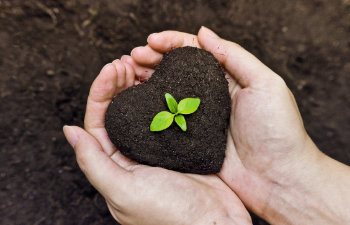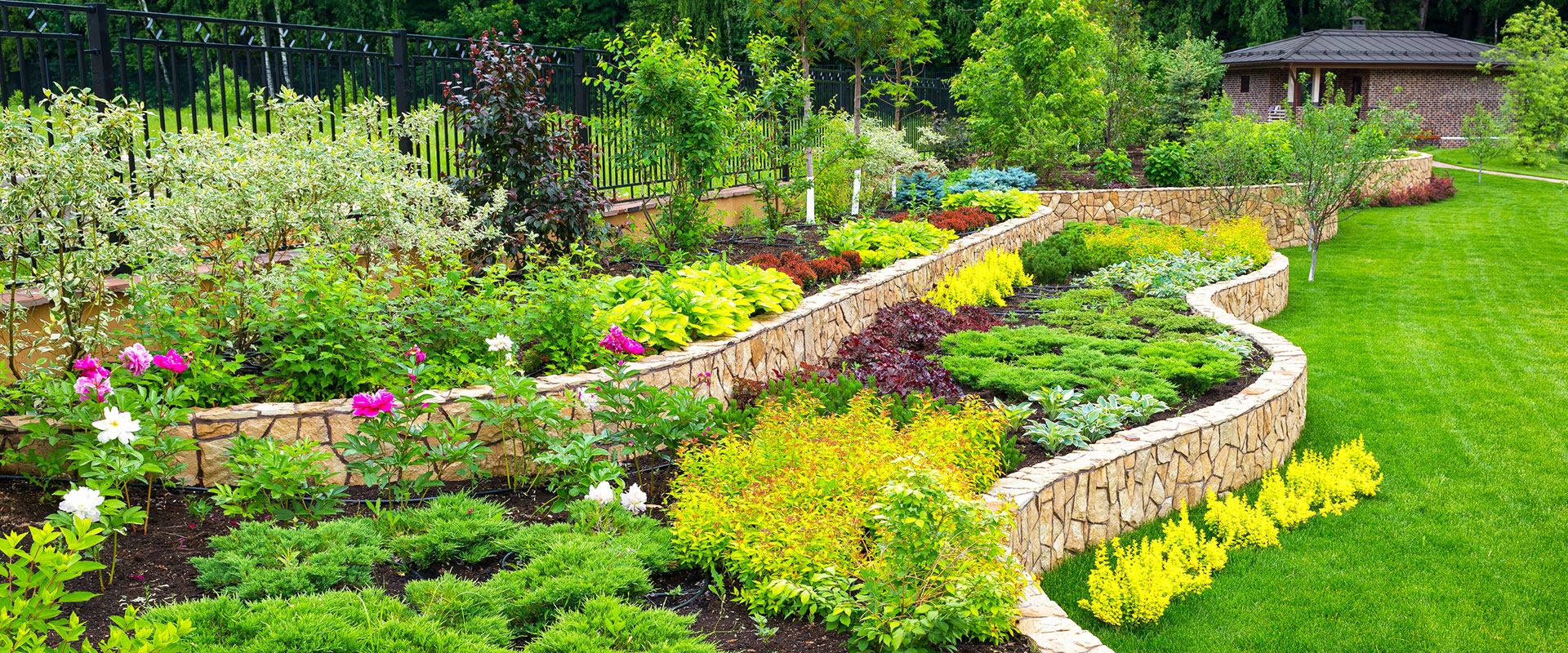
As any seasoned gardener will tell you, the secret to a thriving garden lies beneath the surface. At Everlast Lawns and Landscapes, we know that selecting the right soil is crucial for the health and vitality of your plants and flowerbeds. Whether you’re a green-thumbed enthusiast or just starting your gardening journey, understanding soil basics can make all the difference in creating a lush, vibrant landscape that lasts.
The Foundation of Healthy Plants
Before we delve into soil types, let’s consider why soil is so important. Soil serves several critical functions for plants:
- Nutrient Supply: Soil provides essential nutrients plants need to grow.
- Water Retention: It holds and releases water as needed by plants.
- Oxygen Access: Good soil allows roots to access oxygen for respiration.
- Anchoring: Soil provides stability for plant roots.
- Microorganism Habitat: Healthy soil hosts beneficial microbes that support plant growth.
Understanding Soil Types
Different plants thrive in different soil types. Here are the main categories you’ll encounter:
Sandy Soil
- Characteristics: Gritty texture, drains quickly
- Pros: Warms up quickly in spring, good for early crops
- Cons: Dries out fast, nutrients wash away easily
- Ideal for: Root vegetables, bulbs, Mediterranean herbs
Clay Soil
- Characteristics: Sticky when wet, hard when dry
- Pros: Nutrient-rich, holds water well
- Cons: Poor drainage, can compact easily
- Ideal for: Late summer crops, ornamental trees, fruit trees
Silt Soil
- Characteristics: Smooth texture, holds water well
- Pros: Fertile, good for most plants
- Cons: Can become waterlogged
- Ideal for: Most vegetable crops, climbers, perennials
Peat Soil
- Characteristics: Dark, moisture-retentive
- Pros: Excellent water retention, good for acid-loving plants
- Cons: Low in nutrients, can dry out in summer
- Ideal for: Rhododendrons, heathers, camellias
Loam Soil
- Characteristics: Perfect balance of sand, silt, and clay
- Pros: Fertile, well-draining, easy to work with
- Cons: Can be expensive
- Ideal for: Most plants, considered the best all-round soil type
Testing Your Soil
Before amending or choosing soil for your garden, it’s essential to know what you’re working with. Here are some simple tests you can perform:
- Squeeze Test: Take a handful of moist soil and squeeze it. If it holds its shape but crumbles when poked, it’s likely loam. If it stays in a ball, it’s clay-heavy. If it falls apart, it’s sandy.
- Jar Test: Fill a clear jar 1/3 full with soil, add water, shake vigorously, and let it settle. Sand will sink first, then silt, then clay on top. This gives you an idea of your soil composition.
- pH Test: Use a home testing kit or send a sample to a lab to determine your soil’s acidity or alkalinity. Most plants prefer slightly acidic to neutral soil (pH 6.0-7.0).
Amending Your Soil
Once you understand your soil type, you can amend it to create the ideal growing environment for your plants:
- For Sandy Soil: Add organic matter like compost or well-rotted manure to improve water retention and nutrient content.
- For Clay Soil: Incorporate organic matter and coarse sand to improve drainage and aeration.
- For Silt Soil: Add organic matter to improve structure and drainage.
- For Peat Soil: Mix in lime to reduce acidity and add balanced fertilizers to boost nutrient content.
Choosing the Right Soil for Specific Plants
Different plants have different soil preferences. Here are some examples:
- Vegetables: Most prefer well-draining, nutrient-rich loam soil. Tomatoes and peppers thrive in slightly acidic soil (pH 6.0-6.8).
- Flowering Annuals: Many prefer loamy soil with good drainage. Petunias and marigolds do well in slightly acidic to neutral soil.
- Perennials: Needs vary, but many prefer well-draining soil rich in organic matter. Lavender prefers alkaline soil, while hydrangeas prefer acidic soil.
- Shrubs and Trees: Often adapt to various soil types but generally prefer well-draining soil. Azaleas and rhododendrons need acidic soil.
Creating the Perfect Soil Mix
For container gardens or raised beds, you can create an ideal soil mix:
- Start with a base of 60% topsoil
- Add 30% compost for nutrients and water retention
- Mix in 10% perlite or coarse sand for drainage
This blend provides a good balance of nutrients, moisture retention, and drainage for most plants.
The Role of Mulch
While not soil itself, mulch plays a crucial role in soil health:
- • Conserves moisture
- • Regulates soil temperature
- • Suppresses weeds
- • Adds organic matter as it decomposes
At Everlast Lawns and Landscapes, we recommend a 2-3 inch layer of organic mulch around plants, refreshed annually.
Professional Soil Solutions
While understanding soil basics is valuable for any gardener, sometimes professional help can make all the difference. At Everlast Lawns and Landscapes, we offer comprehensive soil testing and amendment services. Our experts can analyze your soil composition, pH levels, and nutrient content, providing tailored recommendations for your specific landscape needs.
Our team can also implement soil improvements, from adding organic matter to installing drainage solutions. We understand the unique challenges of soil in our local area and can help you create the perfect foundation for a thriving, beautiful landscape.
Conclusion: Invest in Your Soil for Long-lasting Beauty
Remember, healthy soil is the foundation of a beautiful, thriving garden. By understanding your soil type, testing its composition, and making necessary amendments, you’re setting the stage for gardening success. Whether you’re planting a vegetable garden, creating stunning flowerbeds, or landscaping your entire yard, the right soil can make all the difference.
At Everlast Lawns and Landscapes, we’re committed to helping you achieve the outdoor space of your dreams. From soil preparation to ongoing maintenance, our team is here to support you every step of the way. Contact us today to learn more about our soil services and how we can help your garden flourish for years to come.
Investing in your soil is investing in the long-term health and beauty of your landscape. With the right foundation, your plants will not just survive – they’ll thrive, creating an outdoor oasis that truly lasts.
Posted on behalf of
4315 Summerwood Drive
Cumming , GA 30041
Phone: (770) 480-2695
Email: everlastlawns@aol.com
Monday – Friday: 8:00 AM – 5:00 PM
Saturday, Sunday: Closed


